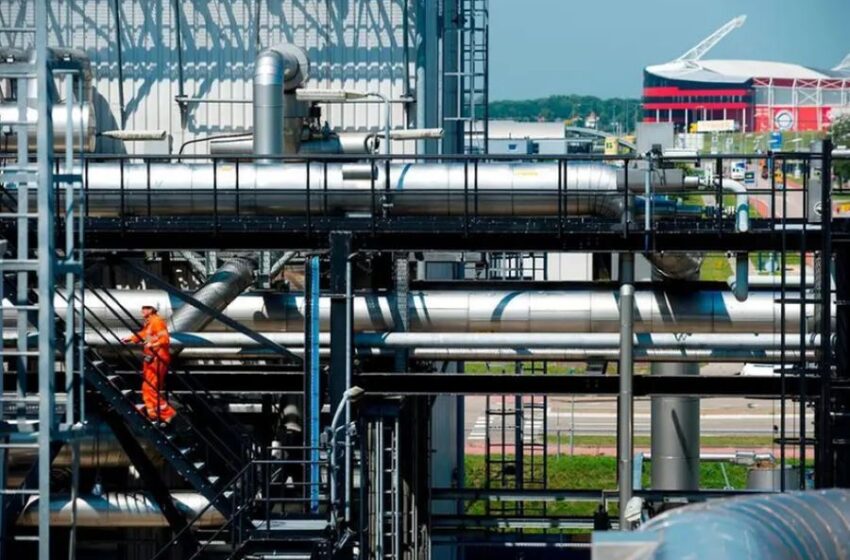
TAQA-led Consortium to Build Two Saudi Power Plants
A consortium led by Abu Dhabi National Energy Company (TAQA), one of the largest listed integrated utility companies in Europe, the Middle East and Africa, on Tuesday said that it has entered into two 25-year power purchase agreements (PPAs) with Saudi Power Procurement Company (SPPC).
The other companies which are part of the consortium are JERA Co., Japan’s largest power generation firm, and AlBawani Capital, a subsidiary of AlBawani Holding, a leading and diversified contracting and development group.
The consortium will develop on a build, own and operate (BOO) basis two new greenfield combined cycle gas turbine (CCGT) power projects with a total power generation capacity of over 3.6 GW in Saudi Arabia.
The PPAs follow SPPC’s announcement for the award of contracts for the 1.8 GW Rumah 2 and 1.8 GW Al Nairyah 2 conventional independent power producer (IPP) projects to the consortium, TAQA said in a disclosure with Abu Dhabi Securities Exchange (ADX) on Tuesday.
The Rumah 2 IPP and Al Nairyah 2 IPP will use the highest efficiency CCGT turbines available and will enable the utilisation of carbon capture technologies. The projects support the Kingdom’s energy mix ambitions which aim to meet power demand through an optimal energy mix for electricity production of 50% from renewable energy and 50% from gas technology by 2030.
The plants are also in alignment with the Saudi Green Initiative that aims to achieve net-zero greenhouse gas emissions through the circular carbon economy by 2060, or earlier depending on the availability of necessary technologies.
The two new plants will be developed by respective special purpose entities owned by TAQA (49%), JERA (31%) and AlBawani (20%) with operation and maintenance (O&M) of the plants to be undertaken by the partners through respective O&M special purpose entities with the same shareholding structure.
Earlier this year, TAQA together with JERA reached the financial close of a new industrial steam and electricity cogeneration plant that will produce electricity and steam for a petrochemical complex located in Jubail in the Eastern Province of Saudi Arabia.
TAQA’s Ambitious Growth Targets
Farid Al Awlaqi, CEO of TAQA’s Generation business, said that his company has ambitious growth targets of 150 GW by 2030, and today’s announcement marks a major milestone for 2024 with the addition of a further 3.6 GW of low-carbon gas-fired power capacity in the Kingdom of Saudi Arabia, making it five greenfield projects in Saudi Arabia under development in TAQA’s portfolio.
He said that in addition to signing the PPAs, TAQA will oversee the O&M of these two plants, demonstrating the company’s expanded operational capabilities.
He also said that today’s announcement of these two greenfield power projects cements TAQA’s position as a low carbon power and water champion and as a trusted and sustainable developer, investor and operator in several key markets.
“Alongside our partners, JERA and AlBawani, TAQA is pleased to be supporting the Kingdom and SPPC on its energy transition journey with these two pivotal power plants,” he added.
Steven Winn, Chief Global Strategist, JERA, said that in line with JERA’s goal to achieve net zero by 2050, the award of these two high-efficiency independent power projects, featuring state-of-the-art HL class gas turbines, reinforces JERA’s commitment to decarbonising thermal power generation.
Eng. Fakher AlShawaf, Group CEO of AlBawani Holding, emphasised that the partnership with TAQA and JERA on these state-of-the-art power plants marks a transformative milestone for AlBawani, reinforcing our commitment to advancing the Kingdom’s energy diversification initiatives.
He added: “Through this project, we aim to deliver a highly efficient and reliable power solution that will play a crucial role in meeting the Kingdom’s growing demand for energy, while also advancing local expertise and creating new opportunities for economic growth.”















